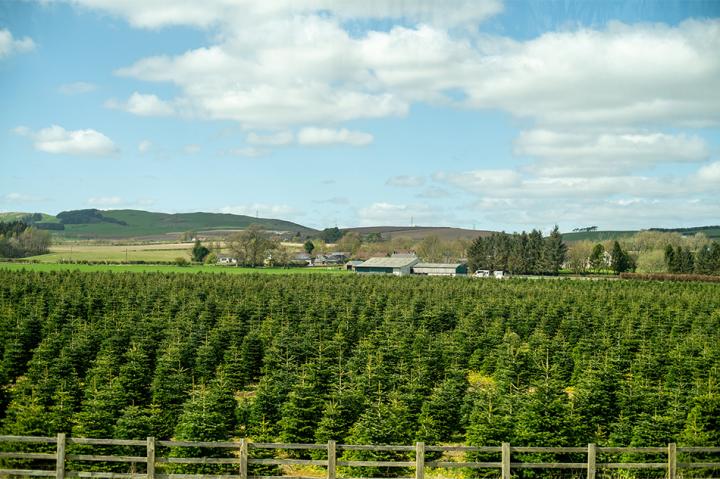Should you branch out into Christmas tree farming?

For many families, the festive season doesn’t truly start until you’ve gone out to pick your Christmas tree. In fact, between 6 and 8 million real Christmas trees are sold in the UK each year.
And for good reason too – not only is the look and smell of a real tree quintessential to this time of year, real trees have surprising environmental benefits, including a lower carbon footprint than their plastic cousins.
Many farms are already diversifying by means of farm shops, camping facilities or similar. As we enter December, you might be considering Christmas tree farming as another way you can generate income. But, as with any diversification project, it’s essential to understand your legal obligations from the very start to avoid running into issues later down the line.
What should you consider?
While there are no planning requirements for specifically growing Christmas trees, you may need planning permission depending on how you’re currently using your land and the proposed size of the Christmas tree farm.
If you don’t own your land, you will need to get the freeholder’s permission to plant Christmas trees. Even if you own the land, you may be subject to restrictive covenants which prevent alternative land uses being implemented.
You may also require an Environmental Impact Assessment (EIA), particularly if the introduction of a tree farm changes the use of uncultivated or semi-natural land or is near any protected areas.
It’s one thing to grow Christmas trees, but selling Christmas trees is another issue to unpack. Depending on current use at the site, you may need planning permission if you’re building a structure. You will also need a licence to sell your trees to the public.
And there's the practical issues...
Beyond the legal issues, there are other practicalities around Christmas tree farming that you need to consider.
These can range from pest prevention (with Christmas trees particularly susceptible to a range of Christmas critters) to the fact that Christmas trees can take around 8-10 years to reach maturity – meaning there’s unlikely to be a significant return on investment in the near future.
On the plus side, this means you’ve got plenty of time to think about whether this is right for you or whether you’re just barking up the wrong tree.
If you’re thinking of adding new income streams to your farm (not just at Christmas), contact Cameron Horton in our agriculture, estates and private client team using 0191 211 7848 or [email protected].
